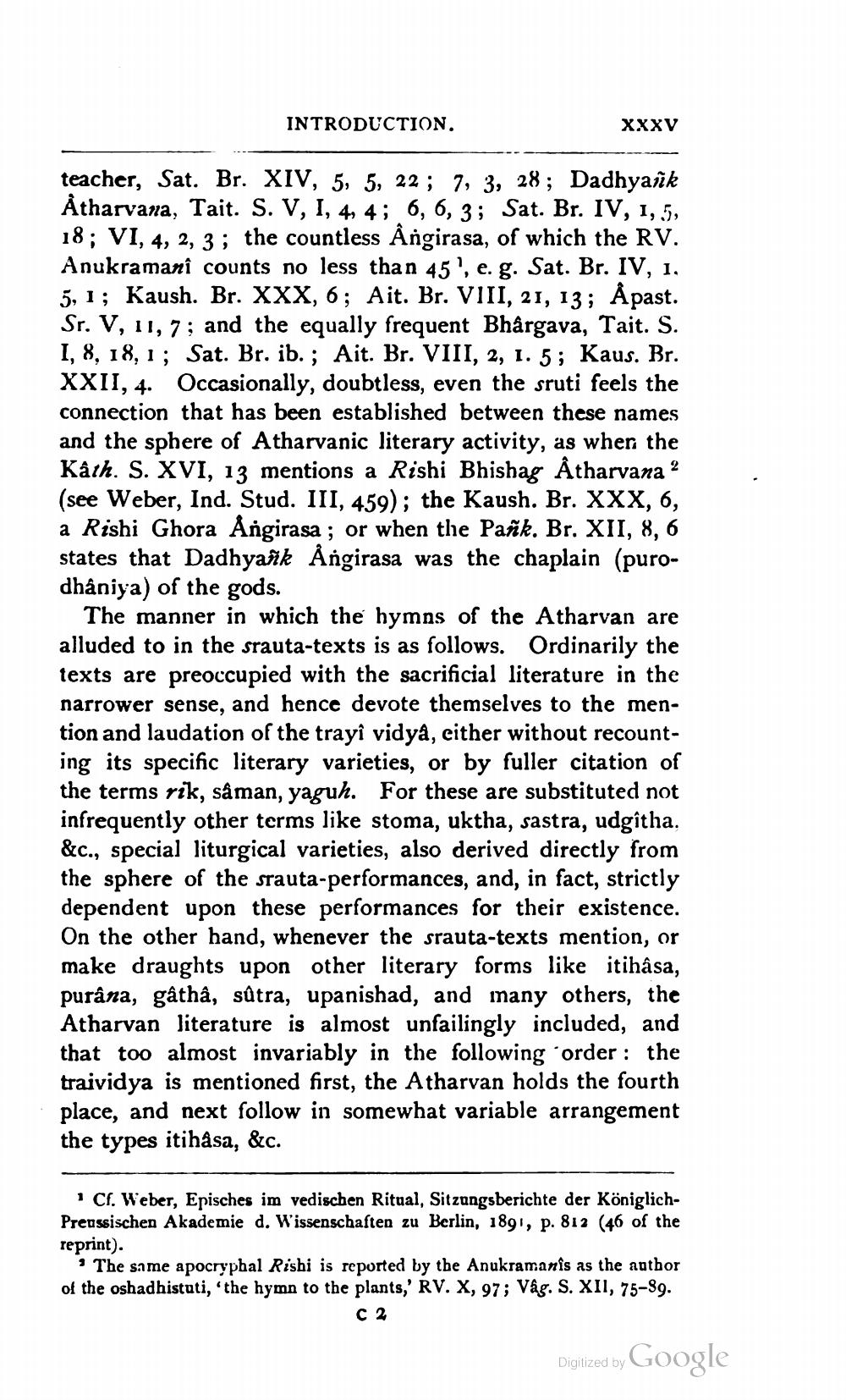________________
INTRODUCTION.
XXXV
teacher, Sat. Br. XIV, 5, 5, 22 ; 7, 3, 28; Dadhyask Åtharvana, Tait. S. V, I, 4, 4; 6, 6, 3; Sat. Br. IV, 1,5, 18; VI, 4, 2, 3; the countless Angirasa, of which the RV. Anukramanî counts no less than 45', e. g. Sat. Br. IV, 1, 5, 1; Kaush. Br. XXX, 6; Ait. Br. VIII, 21, 13; Åpast. Sr. V, 11,7; and the equally frequent Bhargava, Tait. S. I, 8, 18, 1; Sat. Br. ib. ; Ait. Br. VIII, 2, 1. 5; Kaus. Br. XXII, 4. Occasionally, doubtless, even the sruti feels the connection that has been established between these names and the sphere of Atharvanic literary activity, as when the Kath. S. XVI, 13 mentions a Rishi Bhishag Åtharvana ? (see Weber, Ind. Stud. III, 459); the Kaush. Br. XXX, 6, a Rishi Ghora Angirasa ; or when the Pañk. Br. XII, 8, 6 states that Dadhyafik Ångirasa was the chaplain (purodhâniya) of the gods.
The manner in which the hymns of the Atharvan are alluded to in the srauta-texts is as follows. Ordinarily the texts are preoccupied with the sacrificial literature in the narrower sense, and hence devote themselves to the mention and laudation of the trayî vidya, either without recounting its specific literary varieties, or by fuller citation of the terms rik, så man, yaguh. For these are substituted not infrequently other terms like stoma, uktha, sastra, udgîtha, &c., special liturgical varieties, also derived directly from the sphere of the srauta-performances, and, in fact, strictly dependent upon these performances for their existence. On the other hand, whenever the srauta-texts mention, or make draughts upon other literary forms like itihasa, purâna, gâthâ, sútra, upanishad, and inany others, the Atharvan literature is almost unfailingly included, and that too almost invariably in the following order : the traividya is mentioned first, the Atharvan holds the fourth place, and next follow in somewhat variable arrangement the types itihasa, &c.
pisches im vedischen Ritual, Sitzungsberichte der KöniglichPreussischen Akademie d. Wissenschaften zu Berlin, 1891, p. 812 (46 of the reprint).
• The same apocryphal Rishi is reported by the Anukramanis as the author of the oshadhistati, 'the hymn to the plants,' RV. X, 97; Vâg. S. XII, 75-89.
C 2
Digitized by Google




